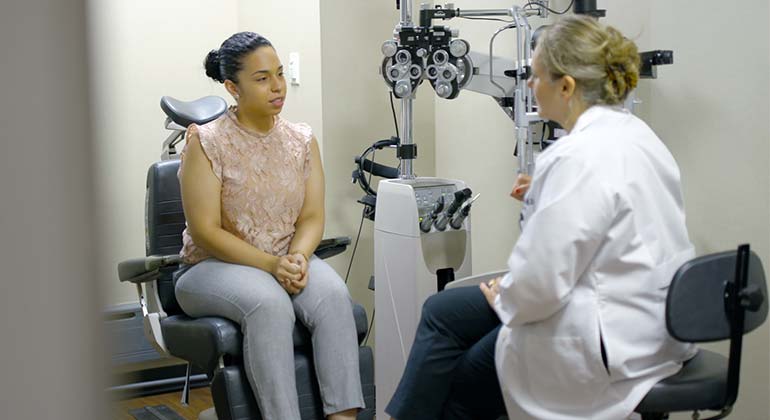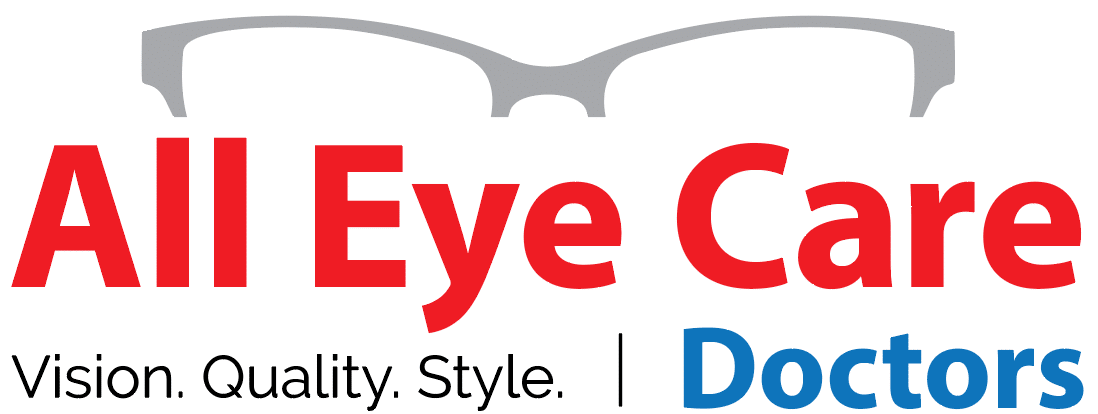Eye Facility in Andalusia: Premier Solutions for Vision Care
Examining the most recent Innovations in Retina Treatments for Numerous Eye Conditions

Innovations in Macular Degeneration Therapies
Macular deterioration, a leading reason of vision loss in older grownups, has seen considerable progress in treatment alternatives. One groundbreaking innovation is the growth of anti-VEGF (vascular endothelial development variable) shots, which have actually changed the management of wet age-related macular degeneration.
Furthermore, the intro of implantable mini telescopes for end-stage macular degeneration has given brand-new possibilities for enhancing vision and top quality of life in choose clients. These telescopic implants can improve aesthetic acuity and expand the aesthetic field, allowing people with innovative macular degeneration to perform daily jobs with higher simplicity. eye center andalusia. Generally, these innovations represent significant strides in the treatment of macular degeneration, supplying hope and improved end results for individuals encountering this challenging problem
Advancements in Diabetic Retinopathy Therapies
Notable innovations in the treatment of diabetic person retinopathy have lately emerged, offering appealing prospects for improving patient results and vision health. Diabetic retinopathy is a severe complication of diabetic issues and a leading root cause of loss of sight amongst working-age adults. One of the breakthrough therapies consists of anti-vascular endothelial growth factor (anti-VEGF) shots, which have actually shown considerable success in handling diabetic person macular edema and proliferative diabetic retinopathy. These injections work by reducing irregular capillary development and leakage in the retina, thus maintaining vision.
Furthermore, laser therapies such as focal/grid laser and pan-retinal photocoagulation have actually worked in treating proliferative diabetic person retinopathy by targeting specific locations of the retina to reduce abnormal capillary development or seal dripping capillary. eye center andalusia. Unique medical techniques like vitrectomy have actually additionally progressed, making it possible for cosmetic surgeons to get rid of blood or mark cells from the eye's glasslike gel extra specifically
Technologies in Retinal Detachment Monitoring
With advancements in medical strategies and modern technology, handling retinal detachment has seen considerable improvements in recent years. One notable innovation is the use of small-gauge vitrectomy systems, which permit for minimally intrusive procedures, resulting in faster recovery times and far better end results for individuals. These systems use smaller tools, causing minimized trauma to the eye and enabling surgeons to execute delicate maneuvers with greater accuracy.
Furthermore, the development of innovative imaging innovations such as optical coherence tomography (OCT) has actually transformed the medical diagnosis and tracking of retinal detachment. OCT provides high-resolution cross-sectional photos of the retina, allowing eye doctors to imagine the level of detachment and plan therapy better.
Moreover, making use of perfluorocarbon fluids during surgical procedure has boosted surgical success prices by assisting in the reattachment of the retina. These liquids assist squash the retina and displace subretinal liquid, aiding in the positioning additional info of the separated retina back into area.
Progress in Retinitis Pigmentosa Solutions
Considerable innovations in research and treatment techniques are driving progression in addressing Retinitis Pigmentosa, a genetic eye disorder that impacts the retina's capability to react to light. Retinitis Pigmentosa (RP) leads to a gradual decline in vision, commonly causing one-track mind and also blindness. However, recent developments in the field offer intend to people influenced by this problem. andalusia pediatrics.

In addition, stem cell therapy shows pledge in changing damaged retinal cells with healthy and balanced ones, possibly restoring vision in people with RP. Clinical trials are underway to evaluate the safety and effectiveness of this innovative strategy.
Advancing Treatments for Retinal Vascular Conditions
Building upon the developments in attending to Retinitis Pigmentosa, have a peek at these guys scientists are currently discovering evolving therapies for retinal vascular diseases, aiming to additionally boost vision treatment and end results in people with numerous retinal problems. Retinal vascular conditions, such as diabetic person retinopathy and retinal blood vessel occlusion, are identified by problems in the capillary that provide the retina, leading to vision impairment and even vision loss if left neglected. Current treatments for retinal vascular diseases include anti-VEGF injections, laser treatment, and corticosteroids to handle the underlying vascular modifications and lower the risk of problems.
Current advancements in the field of retinal vascular disease treatments concentrate on novel drug delivery systems, gene therapies, and stem cell-based methods to target the certain pathophysiology of these problems. For instance, sustained-release implants are being established to supply constant medication distribution, minimizing the requirement for frequent shots. Genetics treatments aim to correct hereditary mutations connected with particular retinal vascular illness, offering a possible remedy or long-term administration technique. Stem cell study holds guarantee for regenerating damaged retinal cells and bring back visual function in patients with vascular retinal disorders. By advancing these innovative therapies, researchers make every effort to boost the high quality of life for people impacted by retinal vascular conditions and lead the way for customized and extra effective vision treatment techniques.
Verdict
In conclusion, the field of retina therapies has actually seen significant developments over the last few years throughout various eye conditions such as macular deterioration, diabetic person retinopathy, retinal detachment, retinitis pigmentosa, and retinal vascular diseases. These innovations offer expect enhanced end results and lifestyle for clients experiencing from these problems. Proceeded study and development around are critical for further progress in the treatment of retinal illness.
From Macular Deterioration to Diabetic Retinopathy, Retinal Detachment, Retinitis Pigmentosa, and Retinal Vascular Conditions, the most click to read recent innovations are reshaping the landscape of ocular health care.Building upon the improvements in addressing Retinitis Pigmentosa, researchers are now checking out progressing therapies for retinal vascular conditions, intending to further boost vision treatment and results in individuals with numerous retinal problems. Retinal vascular conditions, such as diabetic person retinopathy and retinal vein occlusion, are characterized by problems in the blood vessels that provide the retina, leading to vision problems or even vision loss if left without treatment. Stem cell research study holds guarantee for regrowing damaged retinal tissues and recovering aesthetic feature in individuals with vascular retinal conditions.In conclusion, the field of retina therapies has actually seen substantial innovations in current years across various eye problems such as macular deterioration, diabetic person retinopathy, retinal detachment, retinitis pigmentosa, and retinal vascular diseases.